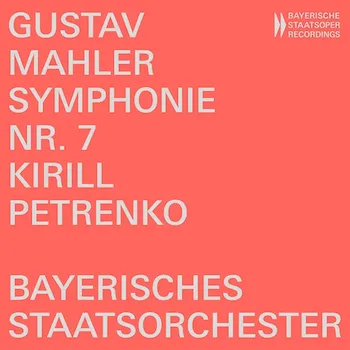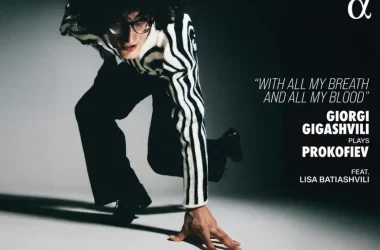With this release the Bayerisches Staatsorchester becomes the latest musical ensemble to create its own recording label. There are obvious advantages for any performing organization, greater control over repertoire and production values being the most obvious. The physical product is certainly lavish: a sturdy, hard-back book with the CD in an envelope attached to the cover. The copious notes offer a detailed history of the orchestra’s concert hall and opera house credentials, and include several photos of the performers, a biographical sketch of Petrenko and erudite (and somewhat self-congratulatory) program notes.

The opening movement’s slow introduction is exceptional, the dark-hued orchestral timbre and ominous thread of the lower strings evoking a suitably doom-laden atmosphere. Petrenko’s handling of the music’s many tempo changes is masterful, each new section flowing from the last with an organic inevitability. Having never heard this orchestra in symphonic repertoire, I found the playing excellent, often astonishingly so. The Bavarian’s sonority and weight suits this symphony and dynamic control is masterful. Each technical challenge (and this symphony has many) is dispatched with disarming ease. Mahler’s dense polyphonic writing has a clarity that rivals Boulez’s Cleveland performance, though the sound in Bavaria is warmer and more opulent than what DG provides in Cleveland. Throughout the performance the listener will marvel at the brilliance and originality of Mahler’s writing. Indeed, sound and clarity are the main issues, this could well be a prime recommendation. But Mahler’s symphony has other, equally important elements, only fitfully realized in this performance.
Questions first surface at 9’00” in the first movement. The music is meant to transport us to Mahler’s beloved mountains, an ethereal oasis from the struggles and pain of life. Petrenko’s reading has a searching eloquence, but turn to Abbado in Berlin (better yet, his DVD recording with the Lucerne Festival Orchestra) and one hears a more despairing layer of resignation – the need for peace is more real, more deeply felt. Abbado, as well as earlier recordings by Rattle (City of Birmingham SO/Warner) and Bernstein (New York/DG) are more affecting because they allow themselves a lessening of tempo and more rubato, making Petrenko seem a little plain-faced by comparison. And the victory of the coda seems too easily won in this reading, whereas in Vänskä’s recent performance (Minnesota/BIS) there is far greater struggle towards the end of the Recapitulation, making the coda’s triumph more powerful.
In the two Nachtmusik movements (Trs. 2 and 4) Petrenko’s tempos are ideal, and he delights in Mahler’s wide palette of orchestral colors. Yet the more grotesque elements are downplayed – is Petrenko reticent to ask for ugly or harsh sounds from his players? (Perhaps this is also an issue of the engineered sound). In the second movement the cowbells are too closely recorded (again minimizing any sense of being up in the mountains). The passage beginning at 7’33” has beauty, precision, and impressive dynamic control (including a fabulous, plucked bass note), but turn to Bernstein, or Tennstedt’s live LPO recording (BBC Legends), and the same music is rendered with a supernatural eeriness that is far more compelling.
Rattle, Bernstein and Tennstedt make the Scherzo a wild ride, highlighting its nightmarish qualities. Petrenko’s reading is gentler, less scary. It is as if we never really travel through the mysterious forest – instead, we skirt around it. In Vänskä’s recent recording the mood is spectral and demonic. Both he and Petrenko reveal a wonderful amount of orchestral detail while maintaining the long line. But in Minnesota the players, especially the winds, are far more characterful.
The Rondo-Finale certainly serves as a litmus test for a conductor’s interpretive stance. Petrenko’s tempo is quite fast – roughly a minute faster than both Rattle and Abbado. He (like Solti in Chicago (Decca) seems to view this music as an orchestral showpiece, and the orchestral playing is indeed stupendous (with fabulous bass drum thwacks). Yet the music’s purposeful patchwork of styles, its disjunct and untidy nature – in short, its very essence – is under-realized. Rattle, Bernstein, and most especially Tennstedt positively revel in this music’s carnival-like atmosphere, and one comes away from those performance exhilarated and exhausted in equal measure, which is what Mahler surely intended. Despite many exceptional qualities, this new release does not displace current favorites.
Mahler – Symphony No. 7
Bayerisches Staatsorchester
Kirill Petrenko – Conductor
Bayerische Staatsoper Recordings, CD BSOREC0001




















